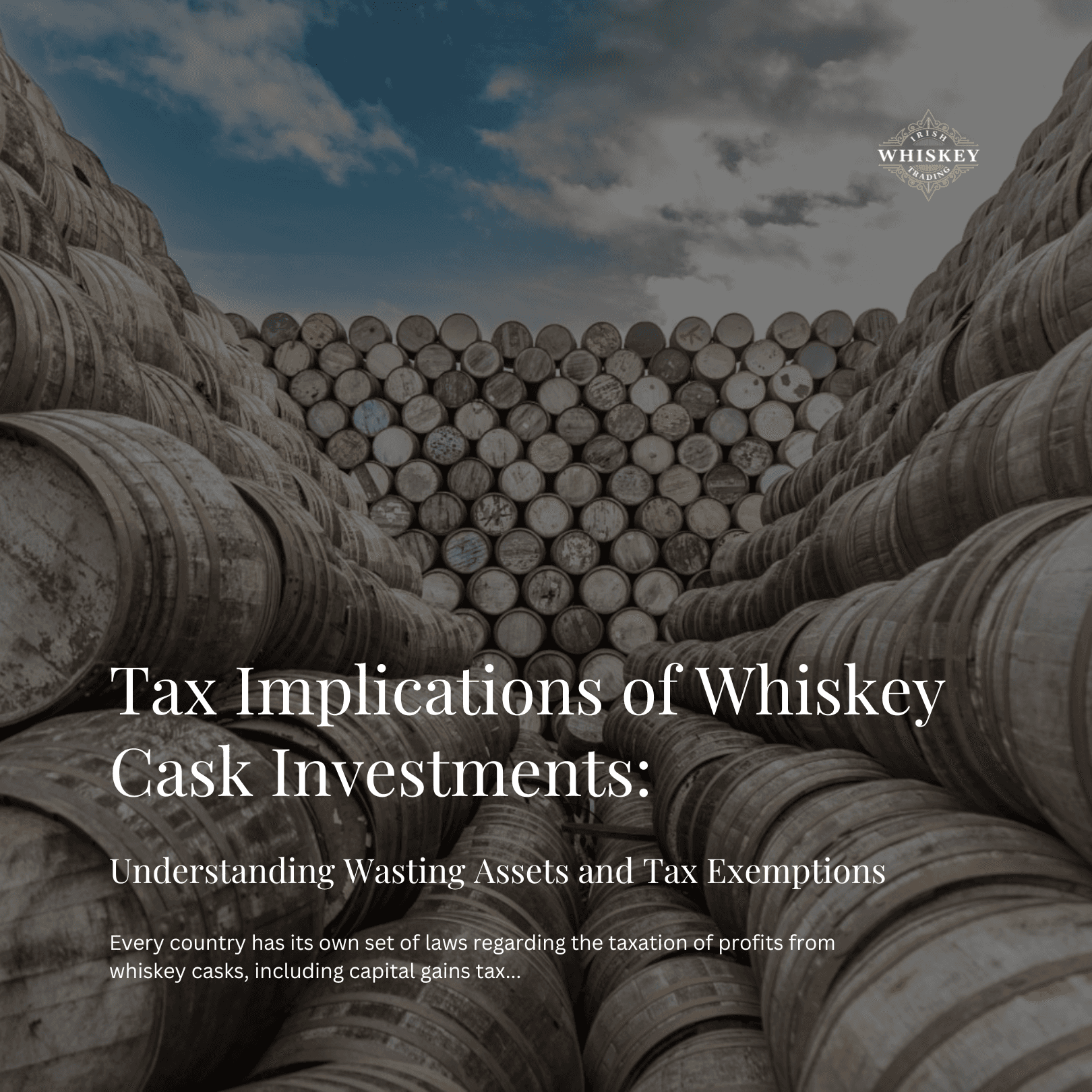Tax Implications of Whiskey Cask Investments:
Latest News
Oct 16, 2024

Every country has its own set of laws regarding the taxation of profits from whiskey casks, including capital gains tax. In the UK, for example, profits made from cask investments might be exempt from capital gains tax if they qualify as a "wasting asset." According to HM Revenue & Customs (HMRC) in their Internal Capital Gains Manual, a wasting asset is defined as any asset with a predictable lifespan of 50 years or less. For a whiskey cask to be considered a wasting asset, it must have a predictable life of under 50 years and be expected to physically deteriorate over time. Additionally, it must only be used for whiskey maturation. If these criteria are met, the cask could be exempt from capital gains tax.
Why is whiskey considered a wasting asset?
As whiskey matures, a small percentage of the spirit—typically between 0.5% and 1.5% per year—evaporates in a process known as the "Angel's Share." This natural loss means the lifespan of a cask is generally well under 50 years, and the volume of whiskey remaining when the cask is sold depends on how long it has been aged. Despite this evaporation, the rarity and value of the whiskey increase over time. The losses are minimal and do not negatively impact the value of the cask. In terms of insurance, companies like Irish Trading Whiskey insure casks for their full initial value, with annual assessments and adjustments reflecting the cask increasing in value as it ages.
Are there any taxes on whiskey?
Whiskey casks are typically stored in bonded warehouses throughout the investment period. These bonded warehouses are secure facilities licensed by the government to hold goods tax-free until they are sold. This allows warehouse operators to transfer goods between locations without incurring taxes or fees at each step. Instead, any relevant taxes or duties are deferred until the goods are sold. If you sell your cask while it remains in bond, no taxes would apply. However, if you decide to bottle your whiskey and remove the cask from the warehouse, taxes such as VAT and income tax would be due.
As with any investment, it's advisable to consult a tax professional to fully understand the tax implications in your jurisdiction. Irish Trading Whiskey also has a strong compliance team to guide investors through potential tax liabilities and provide strategies to manage them effectively.